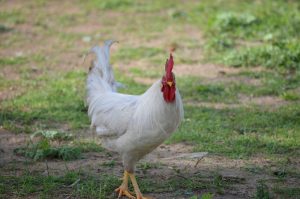Precision Fermentation: Producing Sustainable Proteins with Microbes
Welcome to the world of precision fermentation, where sustainable proteins are being produced using the power of microbes. As the global population continues to grow, there is an ever-increasing demand for protein-rich foods. However, traditional methods of producing proteins, such as animal agriculture, have been proven to be unsustainable and detrimental to the environment. This is where precision fermentation comes in, offering a promising solution to the challenges of protein production. In this article, we will dive into the world of precision fermentation and explore how it is revolutionizing the production of sustainable proteins with the help of microbes.
Understanding Precision Fermentation
Precision fermentation is a novel approach to biotechnology that involves the use of microbes to produce proteins, enzymes, and other valuable compounds. Unlike traditional fermentation, which uses microorganisms like yeast and bacteria to convert sugar into alcohol and carbon dioxide, precision fermentation involves precision-engineered microbes that are programmed to produce specific proteins. This technology has opened up new possibilities for the production of sustainable proteins that are highly nutritious and have a minimal impact on the environment.
The Role of Microbes in Precision Fermentation
Microbes play a crucial role in precision fermentation, as they are responsible for the production of proteins. These tiny organisms are genetically modified to carry out specific tasks, such as synthesizing proteins that are identical to those found in plants and animals. This eliminates the need for traditional protein sources, such as meat and dairy, and reduces the environmental impact of livestock farming. Additionally, microbes can be grown in controlled environments, reducing the risk of contamination and ensuring a consistent and high-quality protein output.
Benefits of Precision Fermentation for Protein Production
1. Environmentally Sustainable
One of the main advantages of precision fermentation is its environmental sustainability. Unlike traditional protein sources, which require large amounts of land, water, and feed to produce, precision fermentation can be carried out in a controlled and efficient manner. This reduces the overall carbon footprint and land use associated with protein production, making it a more sustainable option for meeting the growing demand for protein.
2. High-Nutrition Proteins
Proteins produced through precision fermentation are identical to those found in traditional sources, making them highly nutritious. They contain essential amino acids, vitamins, and minerals, making them a complete protein source. Moreover, precision fermentation allows for the production of proteins that are not commonly found in traditional sources, such as rare and expensive whey proteins.
3. Flexibility in Production
With precision fermentation, the production of proteins is not limited to a certain type of animal or plant. This offers a high degree of flexibility in protein production, allowing for the creation of a wide variety of proteins that can cater to different dietary and cultural preferences. This also reduces the reliance on a few protein sources, promoting diversity in food production.
The Potential of Precision Fermentation in the Future
Precision fermentation is still a relatively new technology, but its potential for the future is vast. With increasing concerns about the sustainability of traditional protein production, precision fermentation offers a promising solution. It has the potential to completely revolutionize the food industry by providing a sustainable and efficient way to meet the growing demand for protein-rich foods.
Conclusion
Precision fermentation is a game-changing technology that is transforming the way we produce proteins. By harnessing the power of microbes, it offers a sustainable and efficient alternative to traditional protein sources. With its potential to produce high-quality and nutritionally-dense proteins, precision fermentation has the potential to address global food security issues and make a significant contribution to creating a more sustainable world.






